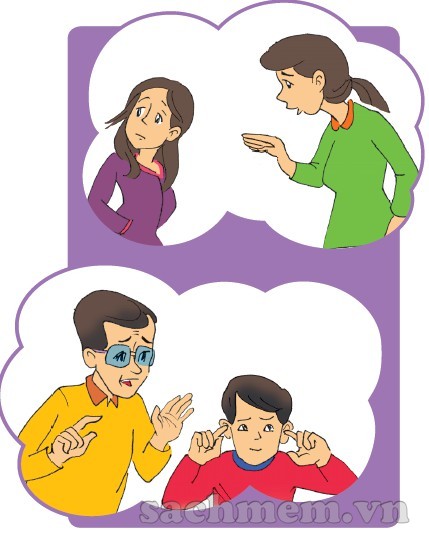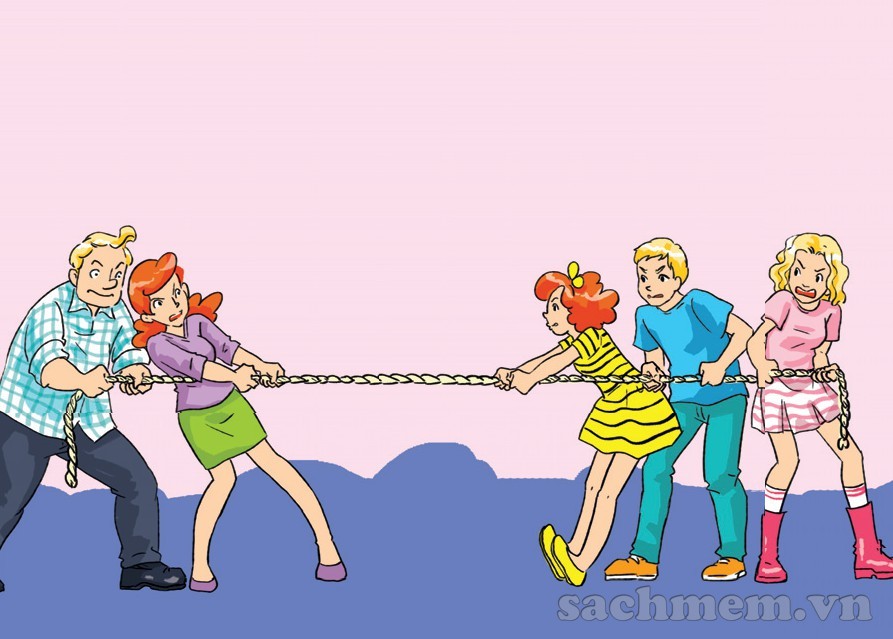
► Kênh hỏi đáp và giải thích thắc mắc kiến thức MIỄN PHÍ → truy cập LINK NHÓM: ENGLISH AMOM
► Kênh YOUTUBE hệ thống toàn bộ bài giảng CLIPS: truy cập LINK: ENGLISH AMOM CHANNEL
► Kênh TIKTOK: ENGLISH AMOM
READING
Where do conflicts come from?
1. You are going to read a text about conflicts between parents and their teenage children. Which of the following do you think you may find in the text. (Page 10)

a. parents and children having different tastes in music
b. parents' strong opinions about everything related to their children
c. children's objection to the way their parents treat them like small kids
d. parents' objection to their children's clothes
e. parents' expectations of their children's better use of free time
f. parents' strong views about their children's education and future jobs
g. parents and children having different beliefs
ĐÁP ÁN:
I think I may find all of them in the text.
2. Read the text quickly and check your predictions in 1. (Page 10)
Throughout history, there have always been conflicts between parents and their teenage children. Here are some of the main reasons and explanations.
No matter how old their teenage children are, most parents still treat them like small kids. As they try to help their children to discover the surrounding world, parents strongly believe they know what is best for their children. However, as children grow up, they want to be more independent, create their own opinions, and make their own decisions. They don’t feel comfortable when their parents still keep treating them like little kids.
One common area of conflict is the clothes children want to wear. Parents may think that these clothes break rules and norms of society, or distract them from schoolwork. What is more, some teens want expensive brand name clothes, which can lead to a financial burden on their parents because many cannot afford the high prices.
Another source of conflict is the way children spend their free time. Parents may think that their children should spend their time in a more useful way rather than playing computer games or chatting online. But children do not always see things the way their parents do.
Conflicts also arise from different interests between parents and their children. Some parents may try to impose their choices of university or career on their children regardless of their children’s preferences. Actually, the list of conflicts seems to be endless. Open communication can really help to create mutual trust and understanding between parents and their teenage children.

ĐÁP ÁN:
b, c, d, e, f
3. Match the highlighted words in the text with the definitions below. (Page 11)
1. have enough money to buy something
2. make somebody accept the same opinions or ideas as you
3. the name given to a product by the company that produces it
4. standards of behaviour that are typical or accepted within a particular group or society
5. situations in which people are involved in a serious disagreement or argument
ĐÁP ÁN:
| 1. afford | 2. impose | 3. brand name | 4. norms | 5. conflicts |
4. Read the text carefully. Answer the following questions. (Page 11)
1. Why do most parents still treat their teenage children like small kids?
2. What do children want to be and do as they grow up?
3. Why are parents concerned about the clothes their teenage children want to wear?
4. How do parents want their children to spend their free time?
5. Do all parents let their children choose a university and career?

ĐÁP ÁN:
1. Because they strongly believe they know what is best for their children.
2. They want to be more independent, create their own opinions and make their own decisions.
3. They are worried because these clothes may break rules and norms of society, or distract them from schoolwork.
4. They want their children to spend their time in a more useful way.
5. No. Some of them try to impose their choices of university or career on their children.
5. Discuss with a partner. (Page 11)
Do you get into conflict with your parents?
Share your experiences with your partner.

